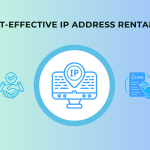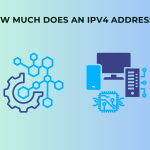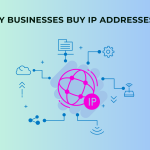What Is a Public IP Address?
A public IP address is an IP address that your home or business router receives from your Internet Service Provider (ISP). It is used when you access the internet and is essential for any publicly accessible network hardware, such as home routers and web servers.
What Does a Public IP Address Do?
A public IP address is an outward-facing IP address used to access the Internet. It is provided by an ISP and assigned to the router, serving as a unique identifier on the Internet.
How Does a Public IP Address Differ from an External IP Address?
The terms “public IP address” and “external IP address” are essentially interchangeable. Both terms refer to an IP address that helps you connect to the internet from within your network to the outside world.
Key Differences Between Public and Private IP Addresses
- Public IP Address: Identifies your network to the wider internet, enabling the information you seek online to find you.
- Private IP Address: Used within a private network to securely connect to other devices within the same network.
How to Obtain a Public IP Address
To obtain a public IP address, you’ll generally need an IP address block, an autonomous system number (ASN), and network configuration. Here are the steps:
1. Get an IP Address Block
- For Larger Organizations: Request an IP address block from Regional Internet Registries (RIRs) like APNIC or ARIN, or from major ISPs. For IPv4, a common block size is /24, which contains 256 addresses. For IPv6, a typical block size is /48.
- For Smaller Organizations: Work with a reputable IP broker to purchase the address block you need. Brokers offer flexible options suitable for smaller businesses.
2. Secure an ASN (Autonomous System Number)
An ASN is a unique code for your network, required to connect to the Border Gateway Protocol (BGP). Request an ASN from IP registries such as APNIC or ARIN.
3. Get BGP Transit Service
BGP allows your network to announce its address block to the internet. To use BGP, contact an ISP to purchase BGP transit service, linking your network to the broader internet through the ISP’s network.
4. Set Up Your Network
With an ASN and BGP transit service, configure your Wide Area Network (WAN) router to connect to the BGP. This connection allows your router to share your address block information with the internet.
5. Connect Your IP Address Block Over the Internet
Announce your address block to your ISP using BGP. Once your ISP receives the announcement, it will connect your network across the internet, enabling data flow to and from your network.
Benefits of Using a Static IP Address
1. Hosting Services
A static public IP address allows you to host services like websites, email servers, and VPN servers directly on your network, providing more control and reliability.
2. Bypassing ISP Filters
A static IP can help bypass ISP filters, often associated with business-grade internet connections, which typically have fewer restrictions.
3. Professional Image
Having a static IP enhances your organization’s professional image, signaling a dedicated online presence.
Frequently Asked Questions
A public IP address is an IP address assigned by your ISP to your router, used to access the internet.
A public IP address identifies your network to the internet, while a private IP address is used within a private network to connect to other devices.
Yes, you can work with an IP broker to obtain a public IP address block suitable for your small business.
An ASN is a unique code for your network, required to connect to the Border Gateway Protocol (BGP).
A static IP address is beneficial for hosting services, bypassing ISP filters, and presenting a professional image online.
Use BGP to announce your address block to your ISP, allowing your network to connect across the internet.






